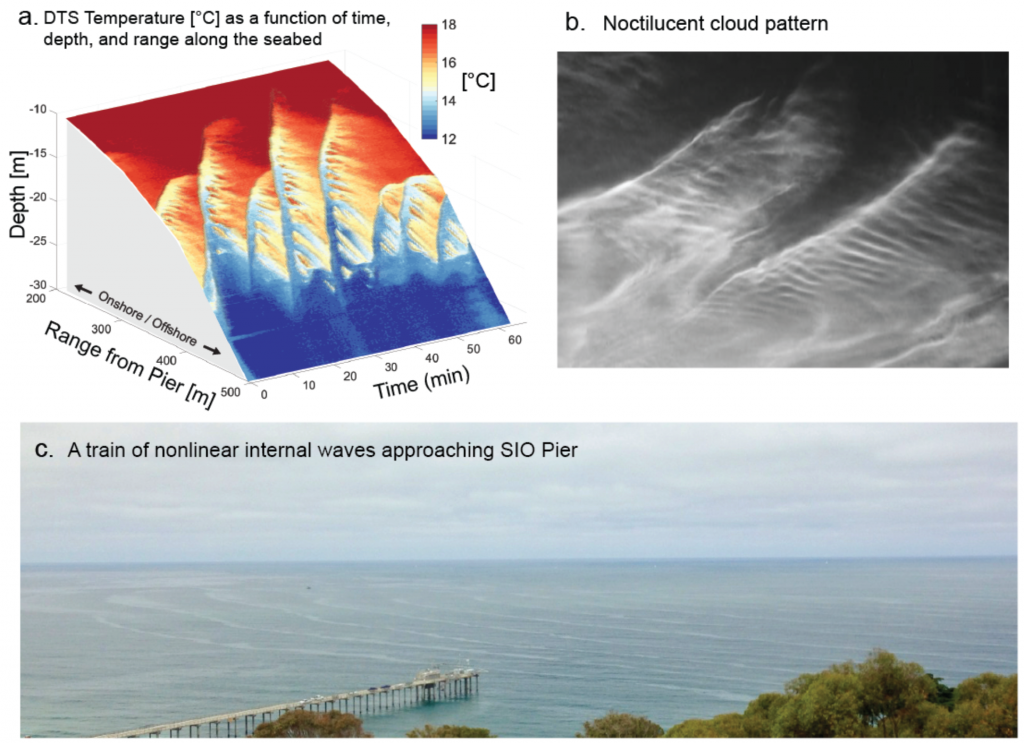We seek a Research Assistant or Postdoctoral Scholar to support the numerical modeling component of a collaborative numerical (UCSD Dept of MAE) and observational (Scripps Institution of Oceanography) project on shoaling internal gravity waves. The selected candidate will develop a predictive numerical framework for the coherent structures that arise during the nonlinear evolution of shoaling internal waves and propagating internal bores observed by a fiber optic Distributed Temperature Sensing (DTS) system deployed in the shelf waters off La Jolla. This position requires a background in the technical and phenomenological aspects of physical oceanography, numerical methods for PDEs, coding experience, and the ability to work independently.

Figure: Observational evidence of streak-like patterns in the wakes of internal gravity waves: (a) Temperature variability in depth, (b) noctilucent clouds in the mesopause, and (c) modulations of sea-surface roughness produced by trains of shoaling nonlinear internal waves. Below the surface, these waves develop secondary instabilities with transverse coherent vortical structures.
Responsibilities
- Implement models for nonlinear internal solitary waves and their interactions using Kadomtsev-Petviashvili-type or Boussinesq-Navier-Stokes-type equations.
- Analysis of the flow physics of streak-like, spanwise instability in shoaling solitary internal waves and near-surface gravity currents using hydrodynamic stability theory.
- Process, analyze, and physically interpret physical oceanographic data including fiber optic DTS measurements.
- Develop physics- and simulation-based optimization strategies for fiber optic DTS antennas for fixed and towed applications.
- Assist in project planning, and manuscript preparation for scientific journal publications and progress reports.
Required Qualifications and Experience
- Ph.D. in engineering sciences, oceanic and atmospheric sciences, applied mathematics, or a related discipline, with a preference for an established track record of peer-reviewed scientific communications.
- Knowledge of physical oceanography, particularly internal wave physics.
- Experience in code development for the numerical solution of partial differential equations.
- Excellent written and oral communication skills.
- Ability to work independently and in a highly collaborative environment.
Application review will begin immediately and the position remains open until filled.
Contact: ![]()